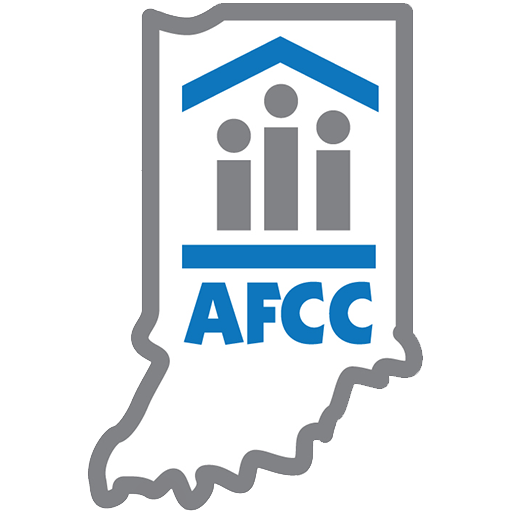 The Indiana Chapter of the Association of Family and Conciliation Courts formed in 2012 to serve the needs of members of AFCC whose practices are focused in Indiana. Our members are attorneys, mental health professionals, mediators, judges, and others who are concerned with helping families navigate and resolve family conflict.
The Indiana Chapter of the Association of Family and Conciliation Courts formed in 2012 to serve the needs of members of AFCC whose practices are focused in Indiana. Our members are attorneys, mental health professionals, mediators, judges, and others who are concerned with helping families navigate and resolve family conflict.
History
In October of 2011, during a regional conference hosted by AFCC in Indianapolis, a group of Indiana family law practitioners voted to begin the process of starting an Indiana Chapter of the AFCC. A Coordinating Committee was formed consisting of 2 judicial officers, 2 attorneys, 2 mediators, and 2 mental health professionals. This Coordinating Committee was able to complete all of the necessary steps to submit Indiana’s application for chapter status to the national AFCC office prior to the gathering of the International AFCC Board of Directors in June of 2012.
During the 2012 International AFCC Annual Conference in Chicago, where over 1,500 attendees gathered to discuss cutting edge research regarding children and families, the International AFCC Board of Directors voted to endorse Indiana as a provisional chapter of the AFCC.
After receiving the International AFCC Board of Directors’ endorsement, Indiana members of the AFCC met at Riley Outpatient Center on August 24, 2012 in Indianapolis to approve the Indiana Chapter’s By-laws and elect the inaugural Board of Directors.
On October 16, 2012, the Indiana Secretary of State accepted Indiana AFCC as a non-profit domestic corporation, and we are currently approved as a 501(c)(3) non-profit.
On November 9, 2014, the International AFCC Office approved our group as a full Chartered Group of the AFCC.
Each year, the Board of Directors holds a leadership retreat to plan educational and networking events for family law practitioners throughout the state.
The Indiana Chapter of the AFCC offers social networking opportunities for family professionals across the state, in addition to in-depth and timely educational programming. Previous topics for educational programming have included:
- Recognizing and Working with Cultural Diversity in Family Law and Alternative Dispute Resolution
- Psychologists, GALs, and Therapists, Oh My! Choosing the Right Mental Health Professional for Your Case
- Children and Sexual Behavior: What’s Normal and When Should We Be Concerned?
- Recognizing and Responding to Domestic Violence in High Conflict Families
- Parenting Coordination: How Mental Health Professionals, Legal Professionals, and the Judiciary Can Make It Work
- When and How to Speak to Children about their Wishes Regarding Parenting Time
- Addictions, Recidivism, and Parenting Capacity
- Abuse, Alienation, or Alternative Answers?
